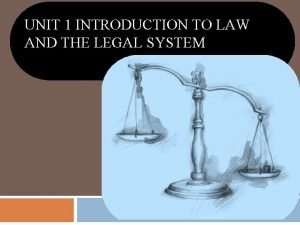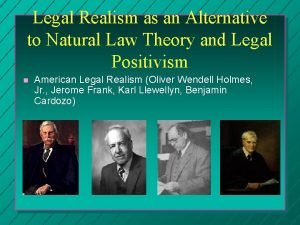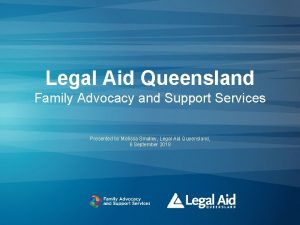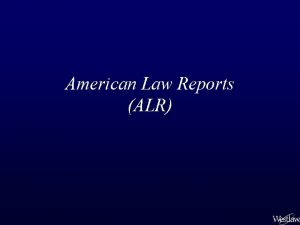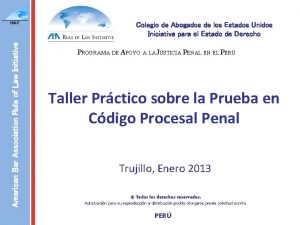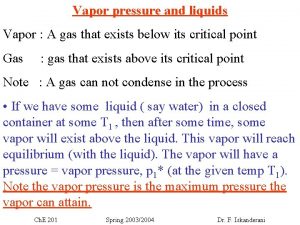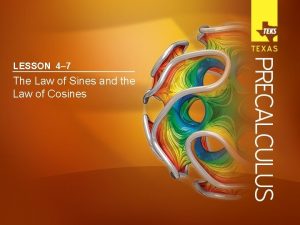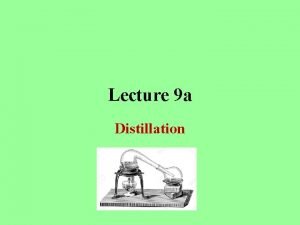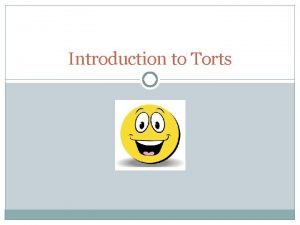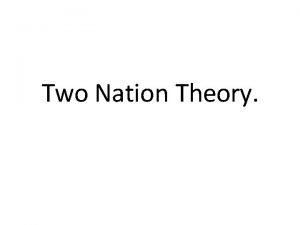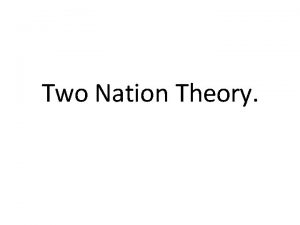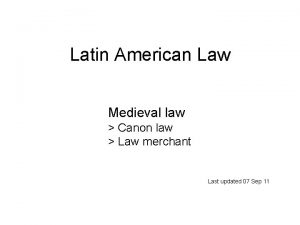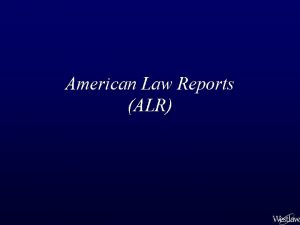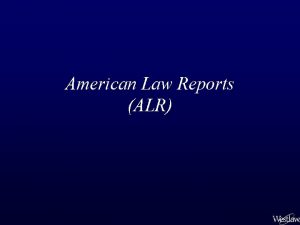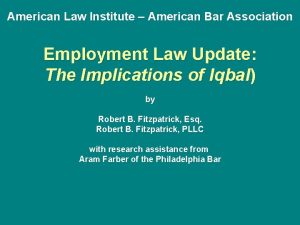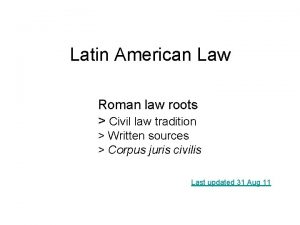Chapter Two American Law and Legal Theory Legal













- Slides: 13

Chapter Two American Law and Legal Theory

Legal Theory • Jurisprudence – Normative • How law should function • The ideal – Empirical • How law actually functions • Impact of law on society Copyright © Houghton Mifflin Company. All rights reserved. 2

Natural Law: An Emphasis on Higher Principles • Natural Law: An emphasis on higher principles – Ancient and Medieval Philosophers • Aristotle – laws should comport with and reflect justice • St. Augustine – laws should be consistent with divine law • St. Thomas Aquinas – laws in conflict with the higher laws were illegitimate Copyright © Houghton Mifflin Company. All rights reserved. 3

Natural Law: An Emphasis on Higher Principles • Natural law theorists in the Modern Era • Natural law in the Enlightenment • Many early theorists grounded natural law in religion – Enlightenment era philosophers like Montesquieu, Hobbes, and Locke, however, saw higher principles derived from reasoning as the ultimate source of law Copyright © Houghton Mifflin Company. All rights reserved. 4

Natural Law to Positive Law • Discarding Natural Law for Positive Law – The late 1800 s saw a gradual abandonment of higher law for positive law (or that law passed by governmental actors) – Future Supreme Court Justice Oliver Wendall Holmes, Jr. was an early and influential critic of natural law • Pragmatic in achieving society’s goals • Socially useful Copyright © Houghton Mifflin Company. All rights reserved. 5

Natural Law: An Emphasis on Higher Principles • World War II rekindled interest in natural law as scholars questioned how the Holocaust and other atrocities committed by the Nazi regime could be condemned if there were no higher principles to which laws passed by legitimate governmental authorities could be compared. – Lon Fuller and Ronald Dworkin were among the most prominent of the post-World War II natural law theorists. Copyright © Houghton Mifflin Company. All rights reserved. 6

Basic Balance • Lon Fuller and Ronald Dworkin were among the most prominent of the post. World War II natural law theorists. – Law must respect individual’s inherent rights when establishing social order Copyright © Houghton Mifflin Company. All rights reserved. 7

Legal Positivism • Focusing on the Written Law – Coke and Blackstone • • The earliest proponents of written law Legislatures pass statutes, laws Judges write opinions Value of precedent – Create certainty and uniformity Copyright © Houghton Mifflin Company. All rights reserved. 8

Legal Positivism: Focusing on the Written Law • Belief that laws were made in response to societal needs and goals • Not to accord with some higher principle • Grounded in traditions, practices of the community • Example: Right to Die Copyright © Houghton Mifflin Company. All rights reserved. 9

Legal Positivism: Focusing on the Written Law • Jeremy Bentham – Code of law based on “greatest happiness principle. ” – Utilitarian principle argued that there were no inalienable rights but only rights recognized by the government through law which should, in turn, benefit the greatest number of people. • John Austin – The only “real” laws are those that enable a gov’t to punish those who failed to obey those laws. • H. L. A. Hart – Valid laws need not be grounded in morality or higher principles – Valid law passed by duly certified & publicly recognized authority Copyright © Houghton Mifflin Company. All rights reserved. 10

Sociological Jurisprudence • The Progressive Movement in U. S. – Law used to promote social welfare and the public good • New York’s regulation of bakers’ working conditions and work hours • Supreme Court case of Lochner v. New York Copyright © Houghton Mifflin Company. All rights reserved. 11

Sociological Jurisprudence • Roscoe Pound and Benjamin Cardozo – Consider practical effects of law on people – Needed to be taken into account by both judges and legislators – Role of judges to second guess legislators Copyright © Houghton Mifflin Company. All rights reserved. 12

Empirical Theory • How Law Functions – – Legal Realism Law and Economics Critical Legal Studies Feminist Legal Theory • • Formal Equality or Liberal Feminism Relational Feminism Dominance/Radical Feminism Critical Race Feminism – Critical Race Theory – Law and Postmodernism Copyright © Houghton Mifflin Company. All rights reserved. 13
 Newton's first law and second law and third law
Newton's first law and second law and third law Newton's first law and second law and third law
Newton's first law and second law and third law V=k/p
V=k/p P=k/v
P=k/v Unit 1 introduction to law and the legal system
Unit 1 introduction to law and the legal system Natural law vs positive law
Natural law vs positive law Legal aid queensland family law
Legal aid queensland family law What is an alr
What is an alr American bar association rule of law initiative
American bar association rule of law initiative Raoult's law and dalton's law
Raoult's law and dalton's law What is a civil law
What is a civil law 4-7 the law of sines and the law of cosines answers
4-7 the law of sines and the law of cosines answers Toluene distillation under vacuum temperature
Toluene distillation under vacuum temperature Criminal law plaintiff
Criminal law plaintiff




